Adivasi Drum
Medical assistance for India's resisting natives
20/11/2010
Globalisation has turned India into a bonanza of the trans-national corporations. The one hundred corporate families ruling a billion people have torn down all protective barriers for capital to flow in and out – ostensibly for the sake of development.
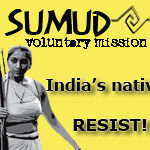
First of all in the mineral-rich belt in the south-east the Indian government awarded vast swathes of land to mining companies and heavy industries with contracts worth dozens of billions of Euros. They come to exploit the natural resources leaving little more than pollution and depleted resources. On the land they wish to appropriate, however, happen to live people mostly without property titles – the Adivasi, Hindi for native people. They are the poorest of the poor, excluded from caste society like the untouchables (Dalits), but differently to them living in formerly remote areas, in the jungles, which provided their livelihood in subsistence.
Thus for business there is only one solution: drive them off their lands like its predecessor evolving capitalism did with the European …
[read more]Anti-Posco struggle in India
POSCO Pratirodh Sangram Samiti (PPSS)
11/11/2010
POSCO, a large corporation, wants to invest in the mining industry in Orissa (India) and build a steel plant, captive power station and port in Erasama block of Jagatsinghpur district - people's protest intensifies.
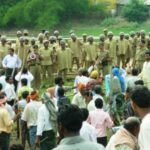
A Note of POSCO Pratirodh Sangharsa Samiti ( PPSS), Jagatsinghpur, Odisha
A Brief Background:
On June 22 2005, Pohang Steel Company (POSCO), a large South Korean corporation, signed a Memorandum of Understanding with the Government of Orissa in eastern India. This MOU outlined POSCO’s proposal to invest in the mining industry and build a steel plant, captive power station and port in Erasama block of Jagatsinghpur district.
For the last five years, people living in the villages of the proposed site under the banner of POSCO Pratirodh Sanghrsa Samiti (Anti-POSCO People’s Movement) have been relentlessly protesting against the land acquisition process. More than 4000 families totaling a population of 30,000 will be affected by the project. These include all those persons …
[read more]Leila Khaled on 10 yrs Intifada
Address to a commemorating act in London
26/10/2010 · Leila Khaled
"We have learnt from history that when a people is occupied and oppressed they will revolt to liberate themselves using all methods"
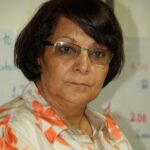
Brothers, Sisters and comrades,
I am glad and honoured to be addressing you for this event.
I would like to tell you that from the start of our Palestinian revolutionary movement, we knew we were not alone, that our struggle was part of the international struggle. This makes us continue our struggle without fear in facing zionism and imperialism, especially US imperialism, as we know people around the world are with us
practically and not just theoretically.
We have learnt from history that when a people is occupied and oppressed they will revolt to liberate themselves using all methods including armed struggle, which is also enshrined in the UN Charta.
Our homeland has been occupied since 1948, and I Leila Khaled have been a refugee for 62 years like 6 million other …
[read more]Worker and Maoist Zhao Dong-min sentenced to 3 yrs
24/10/2010 · China Labour Bulletin
A well-know labour activist was sentenced on 20 October to three years in jail for “gathering a crowd to disrupt social order” (聚众扰乱社会秩序罪), according to media reports.
Zhao Dongmin was arrested on 19 August last year after organizing more than 380 workers from about 20 state-owned enterprises (SOEs) to form a labour rights group tasked with overseeing and monitoring SOE restructuring, and reporting corruption and abuses of power.
The Shaanxi Union Rights Defence Representative Congress was formally banned by the municipal government of Xi’an on 27 July, after which Zhao wrote an open letter protesting the action to the State Council, the municipal, provincial and central committees of the Chinese Communist Party. He was arrested 18 days later.
Since his arrest, Zhao’s case has been taken up by an increasingly vocal group of supporters, many of whom share his leftist political views. Zhao was the head of the Shaanxi Mao Zedong Thought Study …
[read more]Arundhati Roy: “to oppose Green Hunt, one need not go and fight in the jungles”
“Democratic Front against Operation Green Hunt”, Punjub, holds a massive convention at Jalandhar
20/10/2010
Arundhati Roy said the Green Hunt began in Punjab earlier than Chhattisgarh, with the advent of "Green Revolution". Green Hunt is infact the phenomenon to deprive the people of their land and the resources attached to it such as water, forests, mines etc. Green Revolution and the farmers' suicides in its aftermath is pointer to this. About 1,80,000 debt trapped farmers have committed suicides in the country.
On 17th October, when people were celebrating Dussehra to mark the victory of Good over the Evil, the Democratic Front Against Operation Green Hunt, Punjab, held a massive Convention in Desh Bhagat Yadgar Hall, Jalandhar on "War against the people & Role of Democratic Forces." It was addressed by noted pro-people thinker & Booker Award winner writer Arundhati Roy and Gandhian social activist Himanshu Kumar. Hundreds of people from all walks of life - University Professors, Research Scholars, Students, Artists, littérateur, cultural activists, press-persons, farmers, agricultural & industrial laborers, trade unionists, thinkers etc., participated from all across Punjab & Chandigarh. The Convention Hall having a seating capacity of 900 was overfilled & hundreds of people were left to hear …
[read more]Anti-Kurdish mass trial in Diyarbakir
20/10/2010 · UK observer delegation
“The real problem with this is that the charge is essentially a political one, whereby normal political activities such as lobbying, meetings and rallies are deemed to be criminal because it is said to be in support of a banned organisation, the PKK…”
Press Statement from UK Delegation in Diyarbakir to observe the trial of 151 Kurdish political activists and human rights defenders:
We, as delegates from Britain of varying backgrounds and ethnicities welcome the opportunity that has been afforded to us to have firsthand insight into these historic trials. During our observations thus far we have had the opportunity of meeting and speaking with Mayors, Parliamentarians, Lawyers, Academics and many other interested parties. This has given us the opportunity to explore at firsthand the issues in these trials and have helped to shape our understanding of the actual meaning of these trials.
We had firsthand experience of being in the Courtroom with the 151 defendants and their 250 lawyers yesterday and today. We can confidently …
[read more]The Jury Verdicts of Indian People's Tribunal on Operation Green Hunt
18/10/2010 · Organised by: Jharkhand Alternative Development Forum
We are extremely pleased to inform you that we had organized a very successful Independence People's Tribunal on Operation Green Hunt in Ranchi on 25th and 26th of September, 2010 under the banner of the Jharkhand Alternative Development Forum with the support of Operation Green Hunt Virodhi Nagrik Manch, Jharkhand Indigenous People's Forum, Jharkhand Initiatives Desk, Jharkhand Jungle Bachao Andolan, Jharkhand Mines Area Coordination Committee and many other groups.
We had the renowned author and activist Ms. Arundhati Roy as a special observer in the IPT. The esteemed members of the Jury were Retd Judge of Jharkhand High Court, Justice Vikramaditya Prasad, Sri Prashant Bhushan Senior Supreme Court advocate, Sri K.S. Subramanian, I.P.S. and former Director General of Police, Sri C.S. Jha, former CMD of BCCL and ECL and others. We are sharing the observations and recommendations of the Jury. We hope it will have a huge impact in the human rights movement.
Independent people’s tribunal on operation green hunt in Jharkhand
(held in Ranchi on 25th and 26th Sept 2010)
Observations of the Jury
The jury heard the testimonies of a number of social Activists working the Tribals in Jharkhand as well as a number of Tribals themselves who have been …
[read more]In the same trench with anti-imperialist and marxists
Interview with Ali Fayyad, MP of Hezbollah, Lebanon
16/10/2010
Conducted by the Sumud delegation in Beirut, August 6, 2010
Sumud: Can you give us some basic information on Hezbollah?
Ali Fayyad (A.F.): Let me introduce myself first. I am now a member of the Lebanese Parliament, I am in the Political Bureau of Hezbollah and I am a professor at the Lebanese university where I teach Sociology of Politics. From 1982 until 1990, I was responsible for the students' and teachers' sector of the Hezbollah. After that from 1990 until 1994 I was the Hezbollah responsible for the media (TV, radio, newspapers etc.). Then, from 1995 until one year ago I was the General Director of the Consultative Center for Studies and Documentation, the think tank of Hezbollah, so for fourteen years. But when I got my seat at the Parliament I left my position here at this Center. So today I am only a professor at the university and an …
[read more]Bumpy road to rehabilitation
Pakistan: after the natural the social desaster
16/10/2010 · by Naseer Memon, Pakistan
Floods have now receded, leaving a trail of devastation behind. Deep scars of this disaster would take years to heal. Although relief phase is yet to end but concomitant to that more arduous phases of early recovery and rehabilitation can't afford any delay. The camp life ordeal of affectees would soon get over yet their suffering would only change its form as they return to their uprooted abodes.
Early recovery typically requires rapid assessment that may help initiating a transition from life saving to life sustaining activities in the affected areas. This phase entails issues like resettlement, livelihood restoration, rebuilding of basic infrastructure and planning for effective rehabilitation phase. The major challenge in this phase would be the magnitude of physical disaster. The scale of mammoth challenge can be gauged from the damage data. According to NDMA's update of 23rd December, over 1.9 houses are damaged in the country. Sindh province appears to be the worst hit accounting for over 1.1 million damaged houses.
Estimates of infrastructure such as roads, bridges, government offices, culverts do not appear in this report. However, various other reports provide …
[read more]Nobel Peace Prize for staunch neo-liberal
On the Nobel Peace Prize 2010 to Liu Xiaobo
13/10/2010 · Anti-imperialist Camp
Ever since the Nobel Peace Prize went to Kissinger, Begin and de Klerk, we shouldn’t really pay attention to that any more, but the media excitement does get to us, too. Good for Lê Đức Thọ that he rejected the Prize.
Liu Xiaobo is a neo-liberal gadfly. His unreserved admiration for the political, economic and social system of the United States of America has been aptly expressed in his “Charter 08”. Is it because he has been sponsored by the National Endowment for Democracy?
In the 1980s Liu said in an Interview that only 300 years of occupation by a western colonial power could improve the situation in China: “Three hundred years of colonial rule. See what Hong Kong is like today, after one hundred years of colonial rule. China is so big, so of course it would require three hundred years of colonial rule to bring it up to the standard of Hong Kong; I guess three hundred years might even be not enough.” (Interview in Jiefang Yuekan, December 1988)
As an unswerving supporter of the …
[read more]Trial of A Makhoul enters new phase
Arabs of Israel call for solidarity against persecution
5/10/2010
The campaign to free Ameer Makhoul, a Palestinian citizen of Israel and political and human rights activist falsely accused of espionage, has achieved significant advances. Makhoul’s attorneys challenged the legality of the circumstances of his arrest and undermined the prosecution’s core allegations against him on September 16th in the Haifa District Court. State Prosecutors admitted that no evidence of espionage had been found in any of the computers and cellular phones seized from Makhoul’s home and office. Nor was any evidence of espionage found, they admitted, in the transcripts of thirty thousand wiretapped telephone conversations.
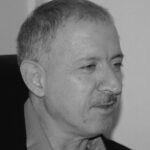
Makhoul’s lawyers further secured a ruling from the Nazareth District Court, September 14th, upholding Makhoul’s right to direct and confidential access to counsel. Makhoul’s right to counsel as a citizen of Israel had been routinely violated by prison authorities, who had been officially and conspicuously wire-tapping his conversations, conducted across glass barriers via telephone, with his lawyers.
Background
Sixteen members of Israel Security Agency, commonly known in English as the Shin Bet, abducted Mr. Makhoul from his home at 3:00 am on May 6th, 2010. They searched his home and office, seizing personal items belonging to Makhoul and his family, as well as office equipment, documents and databases. Makhoul was detained incommunicado. A sweeping “gag order” was …
[read more]Camp leaders acquitted from terrorism
3/10/2010
September 23rd 2010 is a day we will not forget easily: «Under the art. 530 first paragraph, the accused are acquitted because there is no case to answer.» A full victory, on a legal level in the first place, but also on a political and moral level. Indeed we will not forget the 1st of April 2004 either, when we were arrested with the accusation of belonging to an international terrorist network.
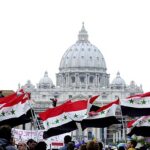
The only network we belonged to was actually the Anti-Imperialist Camp, which the Berlusconi government, the then Minister for Internal Affairs Pisanu and the under-secretary Mantovano had been thinking of getting rid of for a long time, because of its great solidarity campaigns with the resistances of the oppressed people.
For years we were under watch by the Ros and the Digos [special sections of the Italian Carabinieri and Police]. They did not find a smoking gun, nor what could be reasonably called evidence. So they settled for a non-existent entity, which was made up by the attorney of Perugia.
Their theory was simple: according to the special terrorism laws (art. 270bis) and their hardening of December 2001 (270 ter, quater etc.), supporting the resistances to the occupation …
[read more]Stop FBI raids and harassment
Emergency Actions to Support Anti-War and International Solidarity Activists
26/9/2010 · Anti-War Committee
We denounce the Federal Bureau of Investigation harassment of anti-war and solidarity activists. The FBI raided seven houses and an office in Chicago and Minneapolis on Friday, September 24, 2010. The FBI handed subpoenas to testify before a federal grand jury to eleven activists in Illinois, Minnesota, and Michigan. The FBI also attempted to intimidate activists in California and North Carolina.
This suppression of civil rights is aimed at those who dedicate their time and energy to supporting the struggles of the Palestinian and Colombian peoples against U.S. funded occupation and war. The FBI has indicated that the grand jury is investigating the activists for possible material support of terrorism charges.
The activists involved have done nothing wrong and are refusing to be pulled into conversations with the FBI about their political views or organizing against war and occupation. The activists are involved with many groups, including: the Twin Cities Anti-War Committee, the Palestine Solidarity Group, the Colombia Action Network, Students for a Democratic Society, and Freedom Road Socialist Organization. These activists came together with many others to organize the …
[read more]What is behind Abbas’s decision to negotiate?
The socio-economic formation of trickle-down and normalization with Zionism
20/9/2010 · Adel Samara
Over the years of occupation, normalization with the Zionist regime had strengthened and became deeply rooted to dominate all aspects of life in the occupied West Bank and Gaza (WBG) to the extent that it is possible to call it the Socio-economic formation of normalization or Trickle-down.
During the first era of the occupation 1967-1993, the Zionist occupation imposed a plan of shattering and terminating the productive structure of WBG economy, confiscating land for its colonies, closing large farming areas for its military training, dumping the local market with its products and cutting all export import links with other countries, a policy that made the local economy captive to the occupation economy. The occupation destructive policy continued during the second stage of the occupation (1993 until today) under the Palestinian Authority (PA) regime which contributes to the deepening of the crisis but in a different manner.
Israeli terminating policy of the first era which continued through the second era is essentially a de-development policy that has made the social …
[read more]“A common state of Muslims, Christians and Jews without Zionism”
Interview with Abu Obaida Shakir, representative of Islamic Jihad in Lebanon
2/9/2010 · by Mohamed Aburous
In the frame of the Sumud mission to the Ain el Hilweh refugee camp in July/August 2010 we met Abu Obaida Shakir, IJ’s spokesman for the camp.
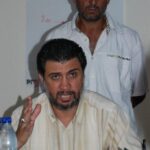
Founded in 1983 the “Islamic Jihad” (IJ) has been the first Islamic organisation which took up arms and joined the struggle for the liberation of Palestine. It offered the first Islamic alternative to the secular project of Arafat even before the Muslim Brotherhood created Hamas and embarked on the armed struggle.
The political difference between IJ and Hamas is that the first puts national liberation before the Islamisation of society. Inspired by the Islamic revolution in Iran its founder Fathi Shikaki (born 1951 and assassinated 1995 in Malta) absorbed many social and political elements not only from Shiite political Islam but also from the secular left and the Pan-arabist movement. His book “Khomeini: The Islamic Solution and the Alternative” which appeared in 1979 can be …
[read more]Lebanon: no substantive change for Palestinians
New law on civil rights promised much but brings only cosmetics
22/8/2010 · by Franklin Lamb
A 15-Minute Sop for Refugees - The members of Parliament decided to do essentially nothing to meet Lebanon’s legal, moral, religious, social and political obligations to her unwanted refugees.
“Palestinian guests in Lebanon are working with total freedom. First of all we do not refer to them as “refugees”. They are our brothers who are suffering and in a very difficult situation that they did not cause and they have lost their country. They sought our help in Lebanon as brothers. You Americans really need to understand that in our Arab, Muslim, and Christian culture, you help your brother. You share with him your loaf of bread. You split it in half and give half to your brother. So out of this sacred tradition, out of the long history that binds us with our Palestinian brothers we host them in Lebanon temporarily until they can go back to their country. But while they are here, of course Lebanon is living through a difficult situation ourselves but our Palestinian …
[read more]Salafi leader Khattab calls for Sunni-Shia reconciliation
22/8/2010 · Mohamad Aburous
Interview with Jamal Khattab, leader of the Haraka Islamiyyah Muhjahida (Jihadic Islamic Movement, JIM), conducted in the Palestinian refugee camp Ain el Hilweh, Lebanon, in summer 2010.
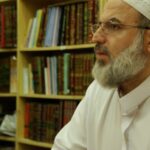
Founded in 1975 by Ibrahim Ghonaim the Haraka Islamiyyah Muhjahida is considered to be the oldest Islamic movement within the Palestinian refugee camp Ain el Hilweh, Lebanon, which embarked on the armed struggle in order to liberate Palestine. It participated in the resistance against the Israeli invasion of Lebanon in 1978 and 1982. In 1990 Jamal Khattab took over the leadership of the group. As a graduate from the American University of Beirut he shaped a moderate face for the movement and focused on media work. Beside Usbat al-Ansar (considered close to Al Quaida) and Ansar Allah (considered close to Hezbollah) JIM with some 200 fighters is the third armed Salafi force in the camp. It is, however, politically more articulated and wields a wider field of influence which leads to a …
[read more]"We are an opposition to both authorities"
Leila Khaled visits „Sumud“ in Ein-Elhiweh
17/8/2010 · Mohammad Aburous
The brigade had a long day filming and interviewing the reality in the camp, as in the late afternoon the news arrived: Leila Khaled is surely coming this evening. Delegation participants were excited to meet what they saw as a Palestinian living legend, who performed two aircraft hijacks within less than two years (1969 and 1970), attrackting the world attention to the Palestinian cause and becoming an icon who personified Palestine in the minds of two leftiest generations.
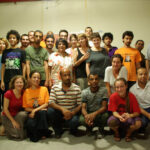
28.07.2010
The Sumud centre was cleaned and enough chairs were prepared. Visitors from inside the camp were expected, who were also excited to meet the historical figure again. Thirty minutes before the scheduled arrival the electricity was cut. Ironic comments were heard in the dark place ‘Well, this shouldn’t be a surprise’; ‘Let’s get some candles, the meeting will be romantic’; ‘You think we should move to the PFLP office?’…. More interesting was the scene outside, as Nashet activists and two old PFLP guards neighbouring the building: - Comrade, you have an electricity generator. Can you lend us some electricity? - Our generator is too small. It barely runs the refrigerator and two lamps! - Please comrade, it is Leila Khaled coming! - And even if it was …
[read more]War threats and conclusion of a successful project
Last Report from the Sumud delegation
9/8/2010 · Elisa Wiener
Amid war threats Sumud concludes its project with screening the films produced with the youth of the camp. It met also Hezbollah' MP Ali Fayyad.
Tuesday, August 3: A new war to come?
On Tuesday, we heard about the escalation at the border in the south that had happened the day before. The Israelis decided to cut a tree on the Lebanese territory because the tree didn’t allow an Israeli camera the full view on the Lebanese land which they seek to observe. The Lebanese army didn’t give the permission to cut the tree on their territory and as the Israelis did it anyway the Lebanese started to shoot. At first they shot in the air as a warning, then they shot on target. The result was three dead on the Lebanese side (two soldiers and one journalist), one on the Israeli side, many injured on both sides, and the danger of a new war to begin.
In the camp we discussed about that issue with the Palestinian refugees. We wanted to …
[read more]Against the crimes on the people of Kashmir by India
8/8/2010
Far away from their home in Kashmir, where life has been put under curfew and dead bodies of boys and girls arrive in every neighborhood, Kashmiris living in Delhi have come together to protest against the repression and killings by armed forces...
A Brief Report of the proceedings of the Sit-In on the evening of 7 August 2010 against the crimes on the people of Kashmir by the Indian State
The evening of 7 August 2010 witnessed after a long long time voices of freedom from the people of Kashmir. Despite the heavy repression and the draconian laws to maim and incarcerate the people of Kashmir, to subjugate their indomitable spirit for Azadi, the evening of August 7 at the heart of Delhi just half a kilometre away from the parliament witnessed unprecedented scenes of assertion of the political will not to say genuine desire of the Kashmiri people for freedom from the exploitative and oppressive rule of the Indian State. Around six to seven hundred people had gathered including people from various peoples organisations in Delhi to …
[read more]






